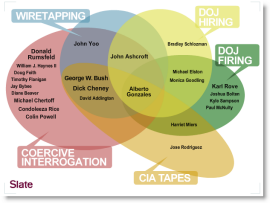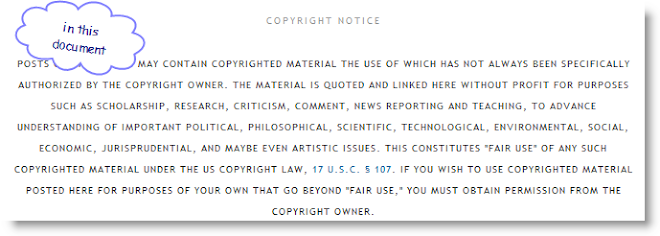Edge 282
MARKOFF: ... there was this other — the Mirror Worlds notion .... Because it basically — you know, computing reflects reality.
GELERNTER: Exactly. As the Gaussian code, as the scientific computing, spun off in one direction, my own interests were really in the other direction. More at the user level. The Mirror Worlds idea began with the idea of delocalized information floating out there so that I could look into my computer and without knowing where to look, what file on which computer, I can sort of tune in the information I wanted the way I tuned in CNN on a TV. I don't have to know where CNN is and I don't have to know on what operating system my TV is running, or the software on my cable box — I just tune it in and I assume it's there. That was the basis, together with the little towns and villages in New England where my wife comes from. She comes from Cape Cod, so then we were driving around in beautiful little village-lets and they really look the way they're supposed to look. A large white church in the center and they often have a pond next to the church and a mill maybe and the pond is absolutely still. Not all the time. But, you know. So you look at the pond and you see a perfect reflection of the church and stuff like that. This is not a revelation. This is the way mirrors work.
So this is going to the cybersphere and the real world will be mirrored on the surface of software essentially. Instead of having to penetrate the real world, go places, deal with institutions in their real-world manifestations, which involves a lot of trouble and a lot of time and a lot of energy, in some cases necessary and desirable but not always, I'll be able to tune in any part of reality I want. The university I'm a student at, the company I work for, the local school my kid goes to, a hospital where I help, for instance, and so forth.MARKOFF: What's so striking about that to me is thatthe world is just now catching up with that.
Ideologically where you were, and what so hit me over the head at that point where Mirror Worlds came up, is that that was in a sense flying in the face of the computing ideology of the times, which were predominantly personal. You, and to a certain extent Mark Weiser at Xerox, had this notion — his notion of ubiquitous computing had many echoes of your ideas. This so much flew in the face of the computing industry and the nature of our view of computing at that point. And we still haven't caught up, basically. It's clear now with cloud computing that that's the direction the world's moving in. But only now.
GELERNTER: I think that's absolutely true. You, John, were the first guy to tell me, "When I look at the Web, it is sort of like a mirror world, although it's not quite there in that it doesn't have the real time flow, it's more static." I started thinking about it then — I think you were the first person actually to put that proposition to me.
After that there was really a flood of a lot of people saying, "Well, this is an important book, it predicted the Web, blahblahblah." If anything, the fault of the book — well, there are plenty of faults in the book — is that it was too conservative, in one sense. It was published in '91 and said, "We're going to start seeing this ten years from now; take it from me, you're going to start seeing something like this in reality." But in '94 the Web took off.
We still aren't at a Mirror World type situation where we're at a real time mirror of reality. But in other respects,
the technology is bubbling up all over.
SHIRKY: In some highly instrumented domains we are starting to see it, where people are instrumenting things with sensors. The other thing I think is so striking about it — John mentioned this, right — is that you were flying in the face of the dominant view of the computing industry. What you said, which is simple economics but radical to the industry is, computers will become abundant because people care about them. And when they become abundant enough, we'll stop caring about them.
Because then we can take them for granted. In '91, no one was ready to take computers for granted yet. They were the fetish object themselves. What I got from it — to me it was a revelation, I was just moving in this direction in those times and I felt like I'd been given a new brain reading it — was the sense of, "oh right, this is going to fade into the background and the computer stops being the object you care about."
That movement from object to fabric was absolutely prescient.
GELERNTER: Object to fabric is a beautiful way to put it. I think a lot of the computing industry is still stuck at the object level. I mean it's the engineering in the box that really, really matters. I started telling my students at some point in the 90's, "The picture is the system." They'd say, "Tell me about GUI design but we're going to go the graphic art department, or something. We don't have to talk about the interface here. We have more important things to do. We're talking about the real technology." As far I was concerned, I didn't care about the machine. I mean I cared about it, but the machine wasn't the point. The interconnect wasn't the point. It was a picture. I was dealing with a picture — the picture matters to me. I didn't really care how the picture was produced, but the picture from my point of view was the system.
SHIRKY: That was not the way the computing industry wanted to think, certainly not in the 1990's. Although there were people at Sun whose work on Java was — there was a lot of prescience in the Mirror Worlds thinking — and so on JINI and JXTA.
And in more recent years, the book has been — Technology Review ran a piece [sub. req.; video] two or three years ago saying, "Well, Google Earth is just taken from a figure." They ran a piece about Google Earth with figures from the Mirror Worlds book and saying "You see this is just what Mirror Worlds said about it." And Second Life and stuff like that, but for other reasons.
. . .. ... ..... oOo ..... ... .. . .






